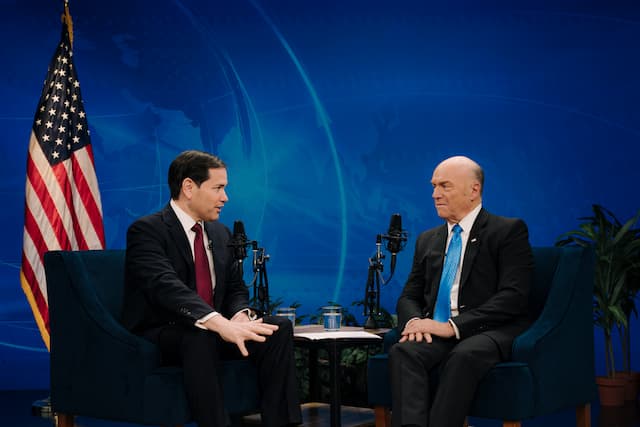A Critical Question for People-Pleasers: Who are you willing to disappoint?
There are two kinds of people. Those who struggle to take no and those struggle to say no.
This post is for the second kind, for those who have a hard time saying no, the self-described “people-pleasers.”
Because, believe it or not, I’m a recovering praise-seeking, people-pleaser too. And these days when I come to a crossroads and don’t know if I should say yes or no, I remember the Molly the dog story.
It started with a call from my friend Kelly on a sunny June morning.
The moral of the Molly the dog story.
Hey Ab. Would you possibly be willing to watch Molly for us next weekend? We’re going up north and I know Molly had fun with you last time.
That was true. Molly had had fun. We weren’t an indoor pet family, but our big fenced-in yard and wrap-around deck made it easy to host Molly for long weekends.
But next weekend was different. We were hosting the birthday bash for our clan’s June birthdays. These June parties were outdoor deck parties and aunts and uncles and a teetering great-grandma and toddling little cousins were coming.
Here’s the rub: Molly was a big lively lab with a tail wag that could bowl a toddler over. With four toddlers in the invite list and two elders who disliked dogs, we’d need to crate Molly for most of Saturday. Molly didn’t much like to be crated. We’d sampled her pitiful, crated yowls last time.
But the party was only one day. And maybe we could keep the kids inside, away from Molly.
Kelly, I want to help, but we’re having this birthday party. Can I get back to you?
You have to disappoint someone.
I was torn. I didn’t want to disappoint my friend. But I also didn’t want to deal with Molly the dog while hosting the party. Jim didn’t mind, either way. So I tossed it around all day and I was undecided- and anguishing- that evening when my parents stopped by.
I wasted no time. Could I ask your advice?
It’s what Dad said, after the Molly story unfolded, that’s stuck.
Abigail, Dad said, You can’t love everyone. You’re human. You have to disappoint someone. When you say yes to one thing, it means you say no to other things and that’s okay. As long as you’re motivated by love- throwing a peaceful party on your deck without distraction by a dog- you’re doing well.
Being human, we can’t love everyone. Only God can do that. We can only give and love and stretch so far. And really, isn’t that freeing?
It means that we don’t have to feel guilty when we say no. In a sense, saying no is a form of humility. It means we’re accepting our limits. It’s acknowledging our finite-ness and creature-ness.
When Mom and Dad left, I called Kelly, Please ask us again. We like Molly. But for this weekend we’d better say no.
How do you know when to say no?
Pleasing people can be a good thing. Giving joy to others is a great gift. Loving and serving and caring for others are God-ordained. But, as Tim Keller says, when a good thing becomes an ultimate thing, it’s become an idol.
And too many of us, and I include myself, have made an idol out of man’s approval and praise.
So, how do we know when to say yes to people? Why do we spend our time doing what we do? Are you confident that you’re saying yes and no to the right things, to the right people?
If we’re honest, we’d probably admit that many of our decisions are based on what we think others will think of us if we do or don’t do something.
For better or worse, how other people perceive us- or how we think they’ll perceive us– has a huge influence on whether we say yes or no.
The Critical Question: Who are you willing to disappoint?
In his insightful article, “You Have to Disappoint Someone: How to Say No to Good Things,” John Bloom writes,
Coming to terms with ways we seek people’s approval or fear their disapproval will force us to face humbling truths about ourselves and may require repentance and uncomfortable change.
Bloom describes a conference he attended where Christian leaders were asked how they remained focused on their core calling while inundated with demands. In response, one of the speakers posed another question: “Who are you willing to disappoint?”
That sounds a lot like my dad’s advice: You have to disappoint someone. I disappointed Kelly. (And, for the record, we’re still friends a decade later.)
Bloom continues,
That might seem like an unloving way to decide what we should or shouldn’t do. But it really isn’t. It’s actually a clarifying question. It isn’t asking us who are the people we will choose not to love. It’s asking us what we are really pursuing in our time commitments. Whose approval are we seeking? God’s? Other people’s? Of those, which one more?
We should ask the Holy Spirit to search our hearts and try our thoughts (Psalm 139:23). We should ask ourselves the hard question: who are we willing to disappoint? Or who are we unwilling to disappoint? Are we unwilling to disappoint God? Or are we unwilling to disappoint others? Are we unwilling to disappoint our own selfish preferences?
Who are you willing to disappoint?
Mary knew who to disappoint.
Let’s close with a fresh look at Mary and Martha through this new lens (Luke 10:38–42).
Martha, you recall, was “distracted with much serving” (Luke 10:40) and “anxious and troubled about many things” (Luke 10:41).
Bloom writes,
I imagine nearly everyone in her home that day thought she was doing a good thing. Martha herself thought this, which is why she requested Jesus’s support in exhorting Mary to get busy helping. She didn’t seem to be aware of her own motivations. But Jesus was. He saw the deeper motivations in both Martha and Mary.
Martha’s time commitment was being motivated by anxiety, not love. Given the context, it’s reasonable to assume her anxiety stemmed from what all her houseguests would think of her if she stopped waiting on them and did what Mary was doing.
On the surface, Mary’s actions might seem selfish and inconsiderate. Since Mary lived with Martha, she must have known how much Martha wanted her help. Yet, there she was, sitting at the feet of Jesus, listening to him speak.
Guess what? Mary knew who to disappoint. She was more willing to disappoint Martha than *to disappoint Jesus.
And remember what Jesus said about Mary?
…Mary has chosen the good part, which shall not be taken away from her.
Luke 10:42
*More on disappointing God and grieving the Holy Spirit in the next JoyPro Post, “Grieve is a Love Word.”






